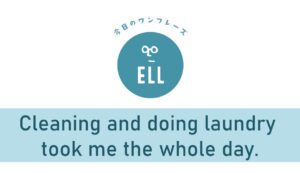
Being at school is a significant time in pretty much everyone’s lives. It’s a time that both shapes us and lets us grow as individuals and gives us experience in interacting with other people. Whether someone remembers their academic experience fondly or badly depends on many different factors. What kind of relationships did that person have with their peers and their teachers? How did they perform in their subjects? The experiences one has while at school may shape both their academic achievement and also their behavior while they’re there.
As for academic behavior, some students behave well in class and follow the school’s rules, and others act in a rebellious manner and do things that might interrupt their classes. In my personal experience when I was at school, there seemed to always be students that would misbehave often, making it more difficult for other students to learn. This is, of course, not an ideal situation for the class as a whole. Having misbehavior in a classroom is problematic for everyone, but who is responsible for controlling this misbehavior? Is it the students themselves? Or is it the parents? The teachers?
Regarding academic achievement, it’s something that is really important to some and not so much to others. How important it is might depend on the values of the student, the values of the parents or the values of society.
Who should be responsible for student behavior and academic achievement? I’ll be discussing this in the following paragraphs.
Let’s start with teachers. Teachers are the ones in charge in the classrooms, the adult in the room. They are responsible for ? as their name implies ? teaching the students, mainly. However, it’s not just this. They are also responsible for creating and maintaining an environment where students are able to learn as efficiently and safely as possible. The misbehavior of a student is their responsibility. Student misbehavior can threaten the ability of students to learn and also the students’ safety, depending on the type of misbehavior that’s occurring. I believe that teachers should try to prevent this from happening to the best of their ability and, by doing so, fulfill their role as an educator.
Teachers should be aiming to help their students receive whatever academic goals the students are aiming for and to encourage those who perhaps don’t have goals. The teachers are the ones with the wealth of knowledge, so naturally they do hold a lot of responsibility for students’ academic achievements. They need to be passing on their knowledge to students so that they can do better in exams.
On the other hand, the parents of students also have an amount of responsibility over the behavior and academic achievement of their children. While teachers should create a safe and motivating environment for children at school, it’s up to parents to create the same thing at home. If parents can help their children to study while at home, that might really affect their grades in a positive way.
Parents have a big effect on student behavior. If children are misbehaving at school, chances are they’re misbehaving outside of school as well. Teaching children good social behavior is a big part of being a parent. Student misbehavior at school could be an indicator of problems at home, as it often is. If parents find out that their child is misbehaving at school, then to just ignore that is an abandonment of their own responsibility.
Finally, the students themselves. Students are individuals, and the older they are, the more aware they are of how they should be behaving in a social setting. As individuals, students are heavily responsible for their own behavior, and their own achievements. Teachers and parents can help them, but it’s up to them to conduct themselves properly and to study when they need to. After all, the teachers or the parents can’t take their exams for them.
In conclusion, I believe that students, especially older students, should try and take as much responsibility as they can for their behavior and academic achievement. However, teachers and parents should be creating good learning environments and being by the student to support them. School is often difficult, and any bit of help a student can get is definitely a good thing.
Thomas
Vocabulary
peer (n) ? a person with the same age, status or ability as someone else
rebellious (adj.) ? showing a desire to resist authority, control or convention
value (n) ? a principle or standard that is important to someone
wealth (n) ? a plentiful supply of a particular desirable thing
abandonment (n) ? the fact or action of having been deserted or left
support (v) ? to help or assist someone or something
英語学習をフルサポート!
マンツーマン&コーチングの英会話教室























